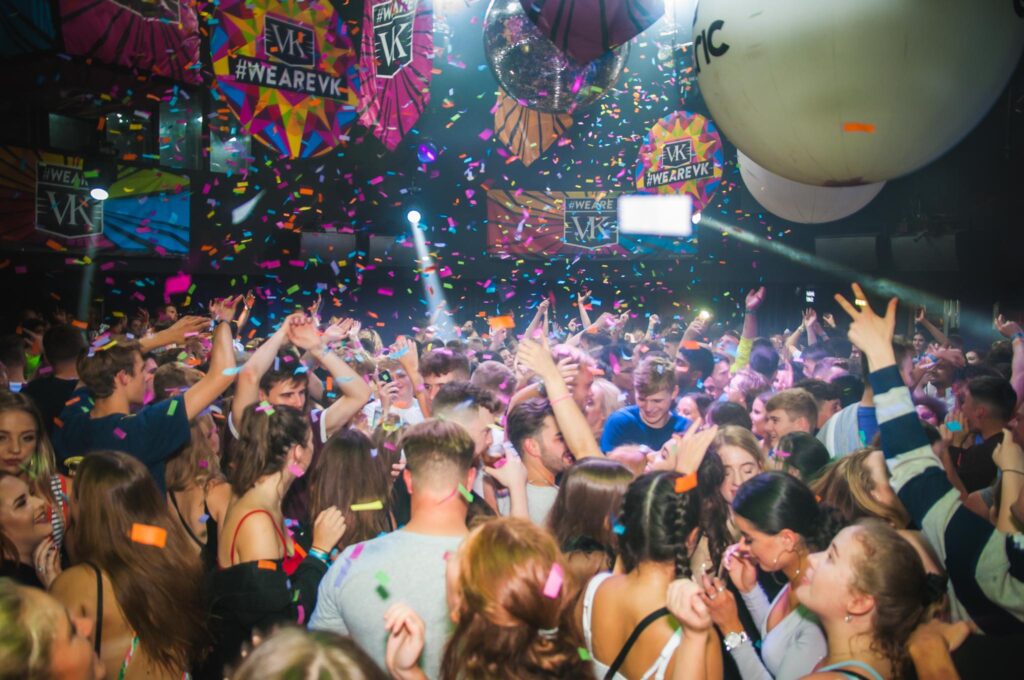Every Wednesday, Sussex students dress up, drink up, and head out to Walkabout, a bar they wouldn’t be seen dead in any other night of the week. It is the one of two venues that host the weekly Sussex societies social. Everyone spends a few hours there downing cheapish drinks, then cheerily stumbles across the road and makes their way into Pryzm to dance the night away, shoulder to shoulder with hundreds of other Sussex students. Some will look forward to it every week, some will fret until the last minute about whether they should even go, and a lot will spend Thursday tired, grumpy, and cringing over what they did or even who they did.
Society night for the students is renowned for being an “amplification of anything that would usually go on at a club” as one attendee puts it. More booze, more foolish decisions, and lots of lust. Both of these student-packed venues seem to provide a cloak for sleazy behaviour and often disrespectful actions.
An exclusive look into Wednesday nights has revealed the coercive behaviour and sheep-like conformity of many who attend, and raised concerns that others do not feel safe or accepted for not wanting to participate in the heteronormative hookup culture that consumes the night.
One female student, who decided to stop attending the socials, shares the reasons why, highlighting she feels both Walkabout and Pryzm are unsafe spaces for queer people.
There are deep rooted problems in the prevailing hookup culture.
“I’ve heard a few homophobic comments being passed around. Also I noticed when girls were hooking up with each other, they were being really over-sexualised by a lot of the male crowds on these nights” she says.
It feels disappointing for this behaviour to be demonstrated by young people in this Pride-centred city, who would not react in the same way to a heterosexual make out.
Furthermore, the student recounts an uncomfortable interaction with a group of males from the football and rugby societies. She felt that “there was an implicit suggestion that this interaction meant that I would try to hook up with one of the guys.” She was hugged by one of the men, who shortly after walked away frustrated that she showed no response to his unwarranted embrace. The student suggests that hosting these socials in a wider variety of spaces might improve the situation, though it seems the problem lies with the attitudes of attendees – rather than the physical location.
In contrast, other students seem to agree that a randy vibe prevails through the night, but do not feel negatively affected by it. One individual said, “I haven’t had a bad experience and haven’t really heard of any… but you can definitely tell men are on the prowl.”

This is prickly wording, as ‘prowl’ does not imply looking for a mate but rather someone waiting for a chance to pounce at one. Apart from its sleaziness, this mindset pushes the boundaries of doing things consensually and respectfully. People should not be spending the night stalking the dance floor looking for someone to be their hookup just so they can feel as though they’ve participated in this culture. And those who want to dance the night away with slightly alcohol-lowered inhibitions should not be subjected to unwanted advances.
Beyond the infringements on being respectful that are apparent in this jock utopia, the expectations of these society nights may also be impacting students’ mental health.
Being at university can be a lonely time, with 26% of students feeling lonely compared to just 8% of the general population, according to the Office for National Statistics. To counter this, students may join societies in an attempt to relieve loneliness, and hopefully meet like-minded individuals. But when the standard society activity is a night out in a crowded bar and club filled with preoccupied individuals, it’s difficult to make genuine connections. Rejection under these circumstances may lead to further feelings of isolation.
While Wednesday nights may be just a bit of fun – as time at university should be – there are some deep rooted problems in the prevailing hookup culture. It can significantly impact students’ enjoyment of the nights and their wellbeing, if this continues unchecked.

